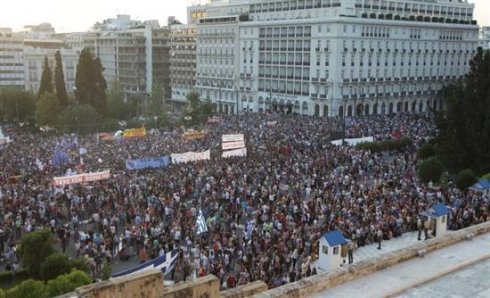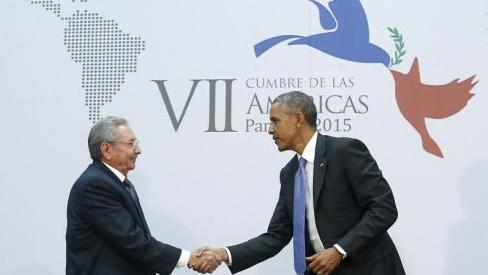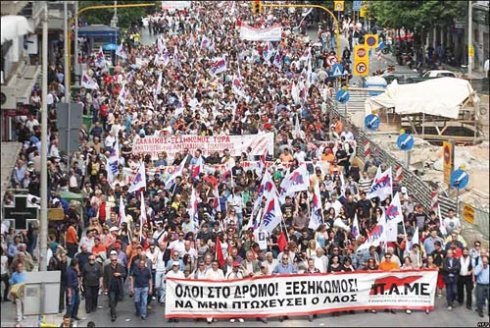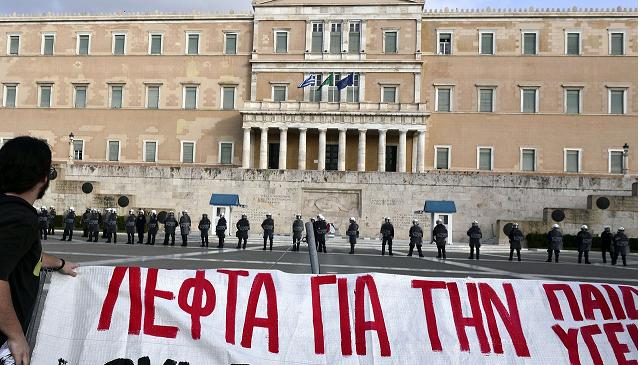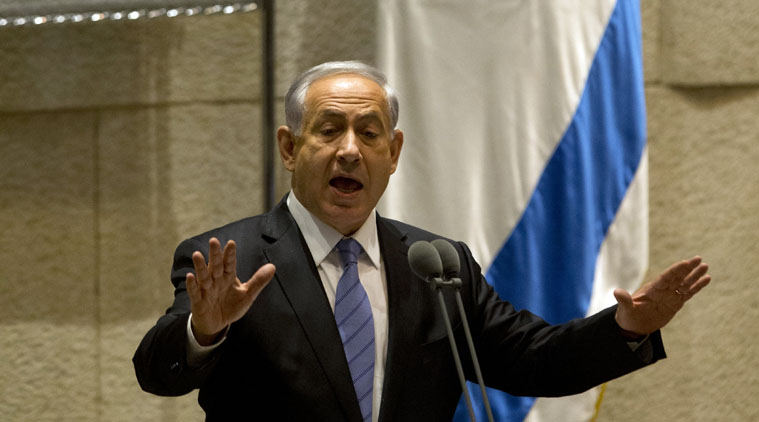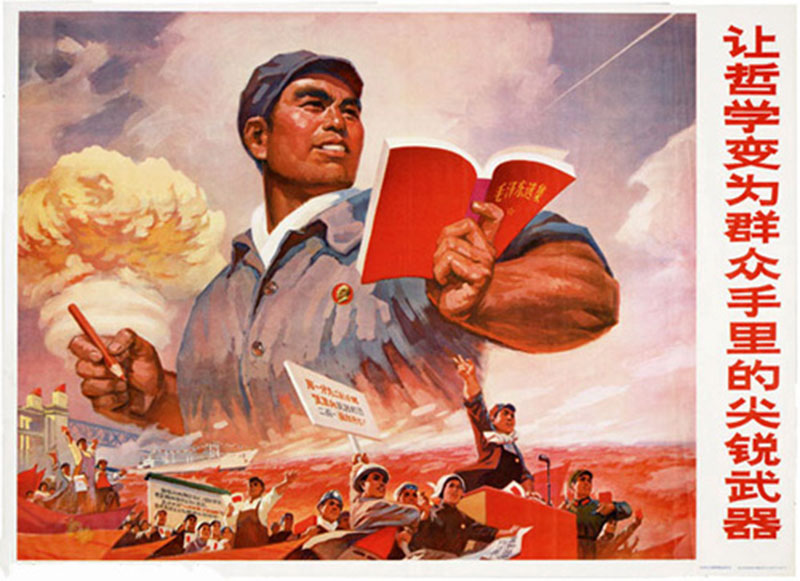Statement of the FT-CI, March 22, 2011
Stop the imperialist bombing against Libya! For the revolutionary downfall of Gadhafi’s dictatorship!
08/06/2011
Stop the imperialist bombing against Libya!
For the revolutionary downfall of Gadhafi’s dictatorship!
On March 19, a coalition of Western powers, headed by the United States, France and Great Britain, with the support of the pro-imperialist governments of the Arab League and cover from the UN, began the military attack against Libya announced in Resolution 1973, approved by the UN Security Council. A barrage of bombs and missiles launched from the sky and from warships and submarines stationed on the Mediterranean coast, has already fallen on Gadhafi’s military targets on the outskirts of Tripoli, Benghazi, and other cities, although the civilian victims of these bombings are still not known.
This imperialist intervention, called ‘Odyssey Dawn’, is presented by the United States, France, and their allies as a ‘humanitarian’ action that has the alleged aim of ‘protecting the lives of civilian’ Libyans. As we have been charging, this is a big hypocrisy, the same people who are attacking Gadhafi today and are self-proclaimed champions of ‘democracy’, were the firmest supporters of the dictatorial Arab regimes, like that of Ben Ali and Mubarak, and continue supporting their agents against the popular mobilization, as Obama does with the monarchy of Bahrain and of Saudi Arabia.
With the intervention in Libya, the imperialist powers are seeking to prevent Gadhafi’s eventual downfall from possibly resulting in the emergence of a regime that could challenge their interests. More generally, they are trying to win legitimacy by appearing on the side of the ‘rebels’ in order to be able to intervene more directly and limit the wave of popular uprisings that has been shaking the countries of northern Africa and the Arabian Peninsula and to be able to guarantee ‘transitions’ or diversions. This process, begun in Tunisia, continues to spread, as shown by the renewed popular mobilization in Morocco against the monarchy, a regime allied with Spain, that among other things, contributes to containing the waves of immigration to the European Union; or, like the process in Yemen that has made a jump in the attempt to overthrow Saleh, one of the main allies of the United States in the ‘War on Terror’.
The military operation ‘Odyssey Dawn’, is not free from contradictions, and its result is still uncertain. The European powers were divided about the intervention in Libya. Sarkozy’s government, because of domestic political reasons, in order to change its image, because of having supported the Tunisian dictator Ben Ali, and, more importantly, owing to its interests in the Mediterranean, decided to recognize the National Transition Council (NTC) unilaterally, and it was a fervent driving force in the military intervention, together with Great Britain, while Germany was opposed and abstained in the UN Security Council voting.
Internal divisions also appeared within the US government, an expression of the United States’ declining hegemony.
In a matter of days, President Obama changed position and decided to promote the intervention despite the fact that the Pentagon chiefs had explicitly declared their opposition to a new military incursion in another Muslim country, taking into account that the United States is still committed in Iraq and Afghanistan.
This change of position is explained by a combination of factors that range from not allowing France to play the leading role, to trying to reverse the lack of US influence in the new processes in the Arab world, that was exposed in Hillary Clinton’s recent trip to Egypt, where she did not manage to meet with the youth groups that were part of the multi-class bloc that toppled Mubarak.
The Arab League, composed of dictatorships and pro-imperialist monarchies opposed to the masses that are rebelling, supported the resolution and gave a lot of cover to the military action, preventing the peoples of the region from viewing it as another intervention of the United States, next to other powers, in defence of their interests or to obtain petroleum. But, faced with the prospect that the bombings will end up causing a large number of deaths in the civilian population, they have begun moderately to question the extent of the coalition’s attacks.
Russia and China are doing the same thing; although they allowed the intervention to proceed, by not using their veto power in the UN Security Council, they are not abstaining from criticizing the bombings.
Nor is it clear what the political objectives of the intervention are, and whether the partners of the imperialist coalition that is running the intervention share them. This opens up several scenarios: one is that the objective is limited to achieving, after several days of bombings, that Gadhafi will negotiate his surrender, in exchange for immunity, and establishing a ‘national unity’ government between the ‘rebels’ and the remains of Gadhafi’s apparatus. Another possible scenario, although more traumatic, is that of a temporary division of the country between a zone controlled by the ‘rebels’ in the east and another under the control of Gadhafi or his supporters in the west. But it cannot be ruled out either that an objective of ‘regime change’ through military means, if it is not easily obtained, will entail an escalation of the imperialist intervention, even with ground troops, opening up the possibility of a counter-insurgency war like that of Iraq or Afghanistan, but in this case, facing the coasts of Europe.
These contradictions became public knowledge a few days after the beginning of the attack, with a discussion about who should continue to lead the operation, in which, on the one hand, the United States and Great Britain, which support the notion that command of the operation should go to NATO, and France, which has reservations, confront each other.
In view of Gadhafi’s military superiority, the ‘rebel’ leadership of the Libyan National Transition Council, instead of appealing to the active solidarity of the workers, young people and popular groups that, from Tunisia to Yemen and from Senegal to Morocco, are demonstrating their heroism in order to confront their own reactionary governments, has for weeks been requesting imperialist intervention to restrain Gadhafi, creating illusions among the thousands who have revolted in Benghazi and other cities, that imperialism could act in favour of the interests of the popular masses. Even worse, the NTC, mainly composed of Gadhafi’s former officials, prosperous middle-class groups, and bourgeois opponents, has promised the different powers that it would respect the oil deals and imperialist investments in the country. At the same time, it has not had the least policy for the hundreds of thousands of immigrant labourers who work in Libya, that are the majority of the working population, and who have been left to their fate by both sides.
The reformist left, including the Green Parties of several European countries, the Socialist Party and the Party of the Left in France, among others, in order to justify their own shameful capitulation to the imperialist military intervention, as they have already done with ‘humanitarian’ arguments in the war in the former Yugoslavia or in Kosovo, have been using the social-democratic argument that military intervention by the United States, France, Great Britain and their allies will allow the Libyan people to get democratic conquests.
We revolutionary Marxists have clearly explained that imperialism is not intervening so that the popular uprising will triumph against Gadhafi, but in order to attempt to impose a puppet government serving its interests, as it did after the invasion of Afghanistan and Iraq. Nor is the solution, as Chávez and other ‘progressives’ have proposed, to subordinate oneself to Gadhafi, who has not only turned into a pro-imperialist dictator, but has embarked on a counter-revolutionary war to crush the popular uprising that called his control into question, as part of the uprisings in the region. The only progressive solution for the Libyan people is to struggle vigorously both against imperialist intervention and to topple Gadhafi’s reactionary dictatorship. In this struggle, the allies of the Libyan people are the workers and the popular groups that have revolted in northern Africa and in the Arab countries, against the dictatorial regimes and the pro-imperialist monarchies; the workers, the young people and the millions of immigrants that can disrupt the warmongering policy of Sarkozy, Zapatero & Co. in the imperialist countries, and all the exploited people of the whole world.
We call on workers’, students’, and popular organizations, human rights organizations and parties of the left, to organize actions and mobilizations to condemn the imperialist military aggression and in solidarity with the struggle of the Libyan people.
Down with the imperialist military intervention in Libya!
Down with Gadhafi! For a workers’ and popular government!
